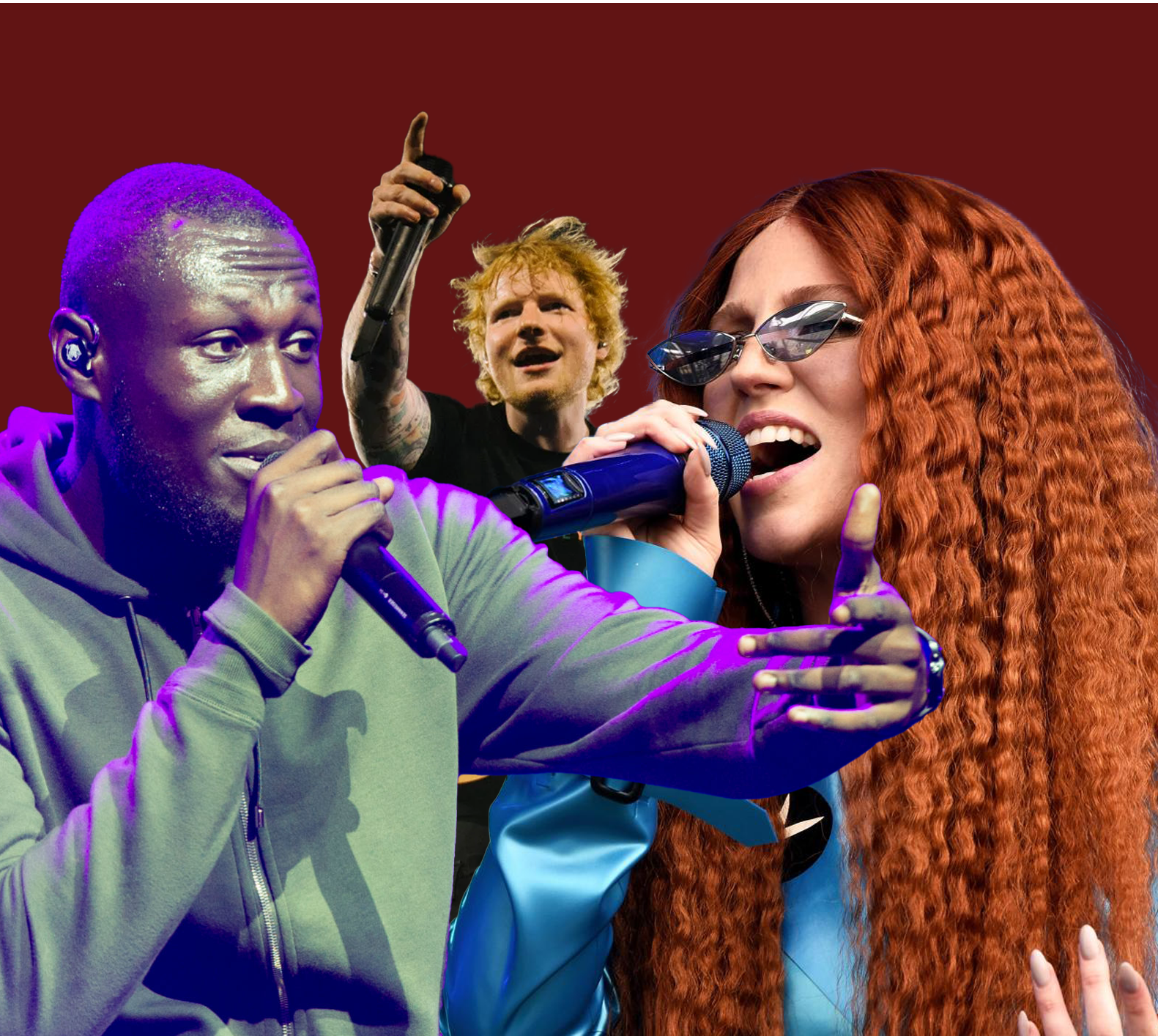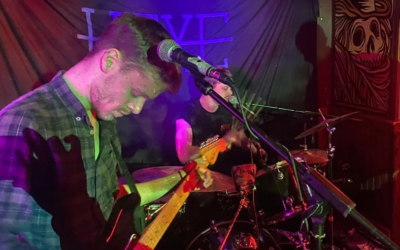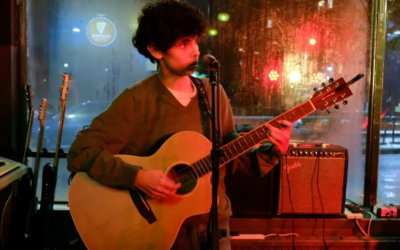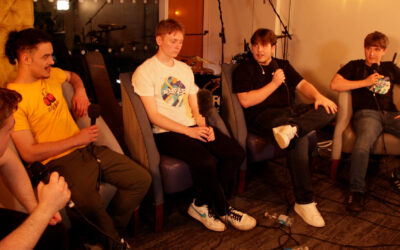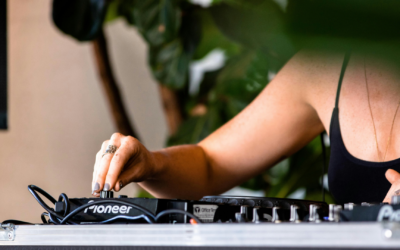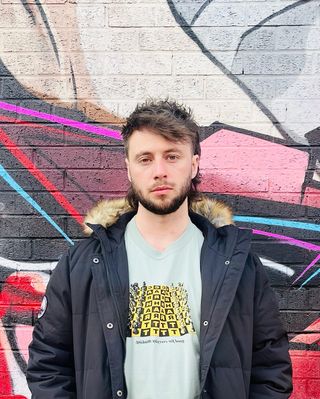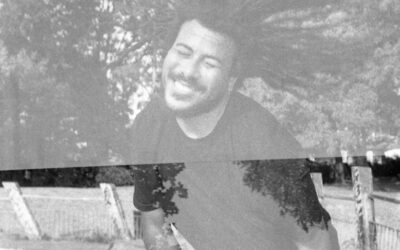Damian Christian, the managing director and president of promotions for Atlantic Records UK, has been in the business for 25 years. He joined RCA Records in 1987 as a radio-plugger, then went onto MCA Records in the early 90s, where he was the youngest ever director of promotions, looking after the likes of Nirvana and Guns N’ Roses.
Finally, he moved to Atlantic in 1999, and the rest is history. “We’ve had enormous success and an enormous amount of fun,” Christian said. “Ed Sheeran’s been our biggest artist over the last 10 years. We’ve seen him come from a young boy from Suffolk, into this sort of global superstar and being part of that is one of the proudest things I’ve been involved in personally,” he said.
Christian has worked with some of the biggest names in the industry, Bruno Mars, Jess Glynne, Snoop Dog, Central Cee, Stormzy, the list goes on. “I’ve got this kind of bible of acts which is actually in this big red binder. It’s just full of amazing, amazing artists I’ve been lucky enough to work with.”
Damian set some of his time aside to speak to Feedback about perseverance, rejection, and self-belief.
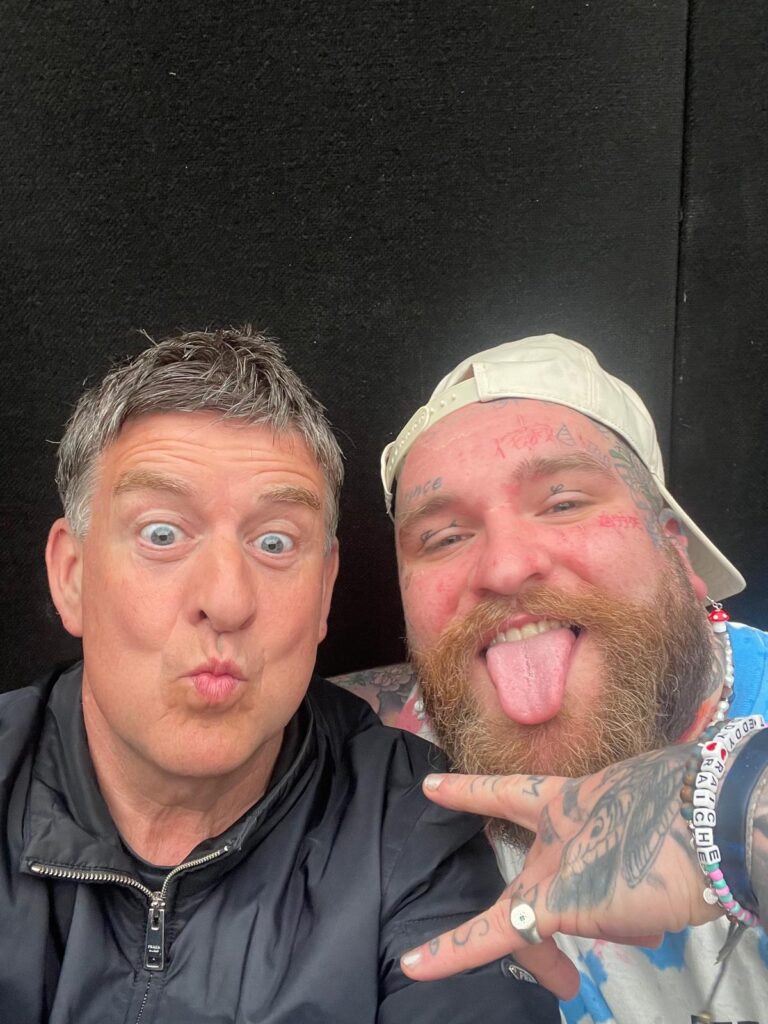
So the music industry has changed a lot in recent years. What do these changes mean for new artists trying to make a name for themselves?
Well, I think in some ways, it’s an even playing field. Because you know, you’ve got to be creative. You’ve got to think of how you can build some of it yourself. You know, you get a manager or one of your friends, and you start working it out. No one’s got the magic wand to make it work on every single act. I think again, it’s talent, luck, hard work, all mixed into the pot, really.
So many things come into play.
You’ve got to really, really go for it. I mean, you know, they say that hard work beats being great sometimes. Some people are great, but they haven’t got the hard work. And, the luck thing is, of course a little bit of luck helps here and there. But you work hard and the luck seems to follow you a bit around, I think as well.
How can artists deal with rejection when starting out?
What we always say to new artists is as well, Ed Sheeran was turned down by every major label, at least once or twice because nobody saw the talent, and then luckily the guys at our place saw something there. These are tough jobs to go for. But you know what, try and enjoy it, and the ride along the way. If someone rejects you when you’re an up and coming star, there’s so many stories of so many big acts, the biggest acts in the world. I mean, the Beatles were turned down. I mean, the list goes on and on and on. I just think that self-belief is so important when you know you’ve got real talent, is to not give up.
It’s a harsh industry.
You’ve got to be a certain person, whether it be a singer songwriter, to want to go out there, you know, in the early days when there’s 10 people watching you and not even listening and talking, to also then being able to handle if you’re playing massive gigs in arenas and stadiums.
Seeing Ed Sheeran going from playing The Barfly in London, you know, like 100 people, to then, I’ve seen him at Wembley Stadium. I’ve seen him play Madison Square Gardens. Seeing this guy that was this 16-year-old, you know, he’s a white ginger rapper from Suffolk. How did that happen? It’s his enormous talent and because he wanted it so much. A real combination of just an amazing talent with just the hardest work ethic you could ever wish for. Ed has worked so hard. And he’s just the nicest, nicest bloke you could ever wish to meet.
Talking about those grassroot venues, I know Ed Sheeran played at the Moles in Bath which sadly shut down after 45 years. How important do you think those smaller venues and playing live is for musicians when they’re starting out?
I think they’re hugely, hugely important. Yeah, it really saddens me when I see venues closing down, and so many have in London, some big ones, some small ones. Personally, I think it’s sad, and I think it’s really important to learn your craft by playing small venues. And that’s something that is being looked at.
How important is networking within the industry, and what are some of the ways new artists can build connections?
Yeah. So again, with that, I suppose, to start with, I think you can get yourself out there by posting stuff online and trying to get a following. I think the online thing, in some ways to start with, is more important than playing some of the live venues. Because, again, social media is such an important part, and that can help you network itself.
I think it’s trying to get management or consultancy, because sometimes with the arty and creative people, they wouldn’t be so good at networking anyway, their thing is just to be great artists. So, I think getting some help along the way, even to start with, maybe some of your friends want to be in management.
We often find that lots of the acts that come along these days are managed at the start by a friend, or dad, or an uncle, or just someone helping out, because, I mean, you kind of make it up as you go along a bit sometimes. But you’ve got to try. Everything is online these days, so you can get to every major label or all the independent small labels. And you look at people you send them in music and you just try to get a way through the door.
But don’t forget, they’re all looking for the new artists, so they should be listening when you’re sending stuff in. We as an industry are finding it hard to break new artists at the moment. So, you know, they are out there and we need to try to find them. So, hopefully, if the artists are trying hard enough and people in record labels are doing their job properly, they will connect and find and find each other.
I know the music industry has also changed since the rise of social media. How important do you think it is for artists to have an online fan base?
Well it’s actually enormous. Radio is still really, really important, but these days it’s in all the social media outlets and streaming. What a lot of newer acts do, is they try and get it all themselves before they come to a label, so they come with, you know, I’ve got X amount of followers on Twitter, on Instagram, this is what I do on TikTok.
You are going to sign some amazing artists off the back of just being brilliant. But, I think we do look at artists that have already got a fan base, that they’re sort of active in that world. And that’s become more and more important over the last five years, before It wasn’t such a telling thing, but social media is so enormous now, so of course.
Do you have any stories of artists that started smaller and grew into major stars with Atlantic Record’s support?
Stormzy was a kind of a personal one, because I started to work with him before he was actually signed to Atlantic. I went to see him early on and we had a meeting, and I sort of found him pretty fascinating.
I presumed he wanted to be on all the cool stuff, all the cool radio shows and cool TV programmes. And so he said to me, I want to go on some cookery programmes. I thought he was taking the micky, I thought how is this real cool dude trying to go on cookery programmes. I’m thinking, is he sort of teasing me or winding me up? And he also said to me, I really want to get on The X Factor.
We got him on judges houses in South Africa. And, his nickname for me was big D, because he’s known as Big Mike, and he’s a fair bit taller than me. So, he was like ‘Big D Big D, I can’t believe you got me on the X Factor’. And it always makes me smile. I think helping people achieve their dreams and being part of it is something that, when I look back, I think I helped those artists do this, that and the other, it’s one of those, you know, you’re a part of it.
“They’re the stars of the show. They’re the ones that write the songs. And we’re in the background just trying to make things happen for them in our worlds. I always call it finessing. They’ve got the talent, we just try and finesse some of those things to our media partners, get them the air time, get them the TV time.”
– Damian
What does the start of an artist’s journey look like and what can they do to succeed?
The journey for new artists… it’s so varied. You can come out the blocks and have a massive, massive hit. And then you’re kind of like, where do we go from here? And other times, you’re building a foundation of trying to build an artist rather than a song. Because in recent times, TikTok is so enormous, you can break a record, have a hit record, but then you don’t really get an artist from doing that. So sometimes the long term approach is better if you want to be an artist-artist like some of the names I mentioned earlier.
Everyone knows who Ed Sheeran is now, or who James Blunt is, or Paolo Nutini. They didn’t when we started with them, they were unheard of, and they are quite difficult to start with. Most of my contacts in media are at radio and television. I would have weekly meetings about my artists, the ones that I look after, about the ones that we’re trying to get people excited about. And that’s the hard part. But when you crack that, then you’re off to the races effectively.
But there’s the beginning bit of up and coming artists and new artists- it’s incredibly hard to start with. I think it’s that real thing of, you know, when you’re starting out? Are you doing it because you really want to be famous or are you doing it because you’re a musician. Are you prepared to sort of grind it out? And if you can’t get your success straight away, will you do other jobs? Or are you going to be a musician whatever happens.


